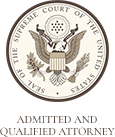Imagine the following scenario: You and three friends drive down a Pennsylvania road in your car with you driving. An officer pulls you over, alleging that you were speeding. After establishing your identity and the fact that you own the car, (s)he then asks if (s)he can search it. You agree and much to your horror, (s)he finds a bag of illegal drugs hidden underneath your seat. (S)he consequently arrests you.
What just happened? You know the drugs do not belong to you, and you have no idea how they got under your seat. Nevertheless, you find yourself facing drug possession charges. But will they stick? Will you get convicted of a crime you did not commit?
Constructive possession proof
As FindLaw explains, the prosecutor has only two ways to prove the drugs belonged to you: actual possession and constructive possession. In an actual possession situation, the officer finds the drugs somewhere on your person, such as in one of your pockets. Obviously this did not happen, so the prosecutor must rely on constructive possession.
In a constructive possession case, the prosecutor must present sufficient circumstantial evidence to convince a jury beyond a reasonable doubt that you owned, possessed or controlled the drugs. Given the circumstances surrounding where the officer found the drugs in your situation, the prosecutor cannot meet his or her burden of proof. Why? Because all three of your passengers had just as much access to the space underneath your seat as you did, and they also had just as much opportunity as you did to place the drugs there. Consequently, the drugs could belong to any of you and no one can determine with certainty which of you possessed them. Had the officer found the drugs in your locked glove box, the key to which you gave him or her, then the jury could reasonably infer that you possessed the drugs since you controlled their hiding place.
This is general educational information and not intended to provide legal advice.



